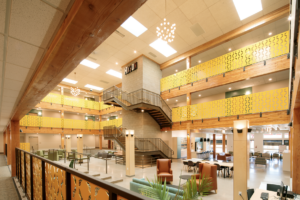Virtual Symposium Description
The environment plays a significant role in the health and well-being of people experiencing homelessness. In many cases, the environment contributes to the stress and re-traumatization of individuals, while restricting participation in necessary daily activities and healthy connections. However, the environment also presents a significant opportunity to begin the process of healing. Medical respite care programs are centered in the health care and housing continuums – offering opportunity for rest, healing, and connection. Creating trauma-informed spaces within medical respite programs enables the healing process and allows opportunity for people to feel safe and begin to address multiple health and housing needs.
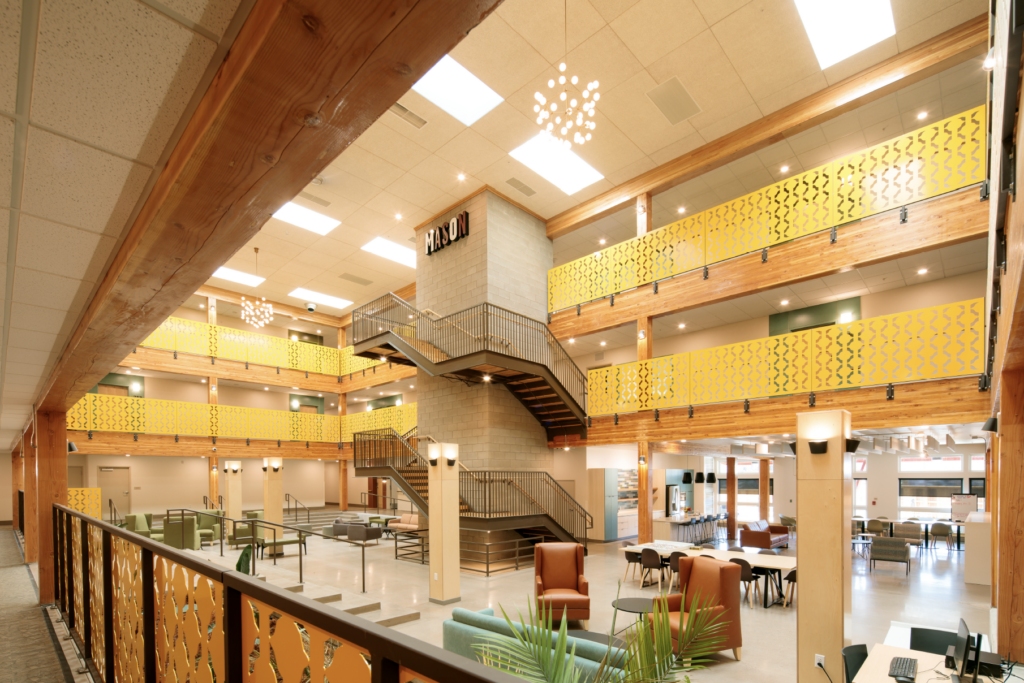

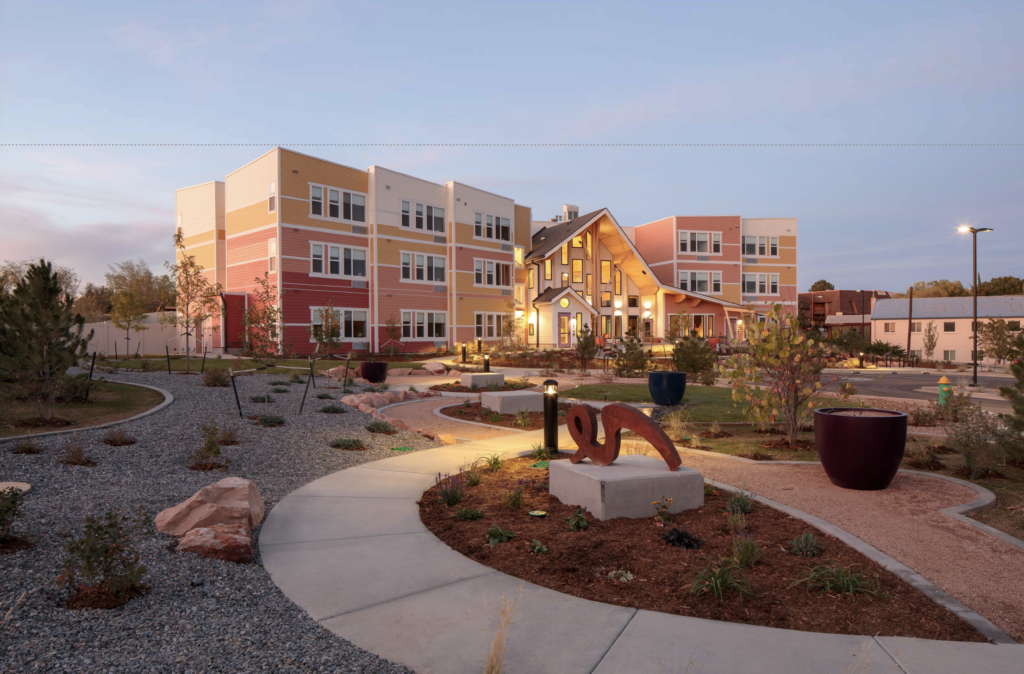

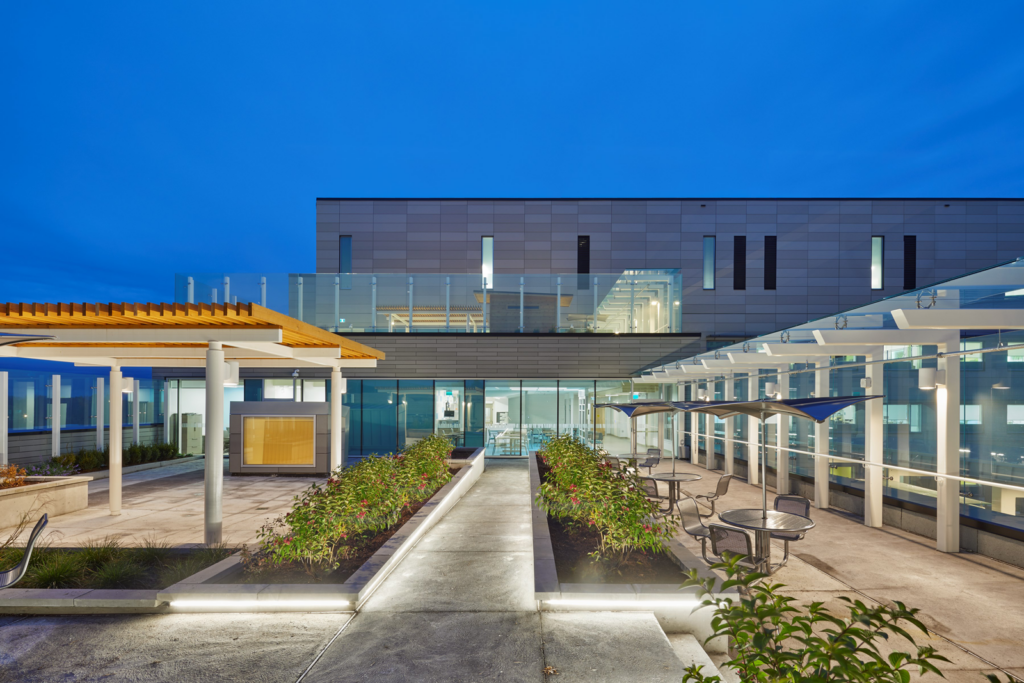

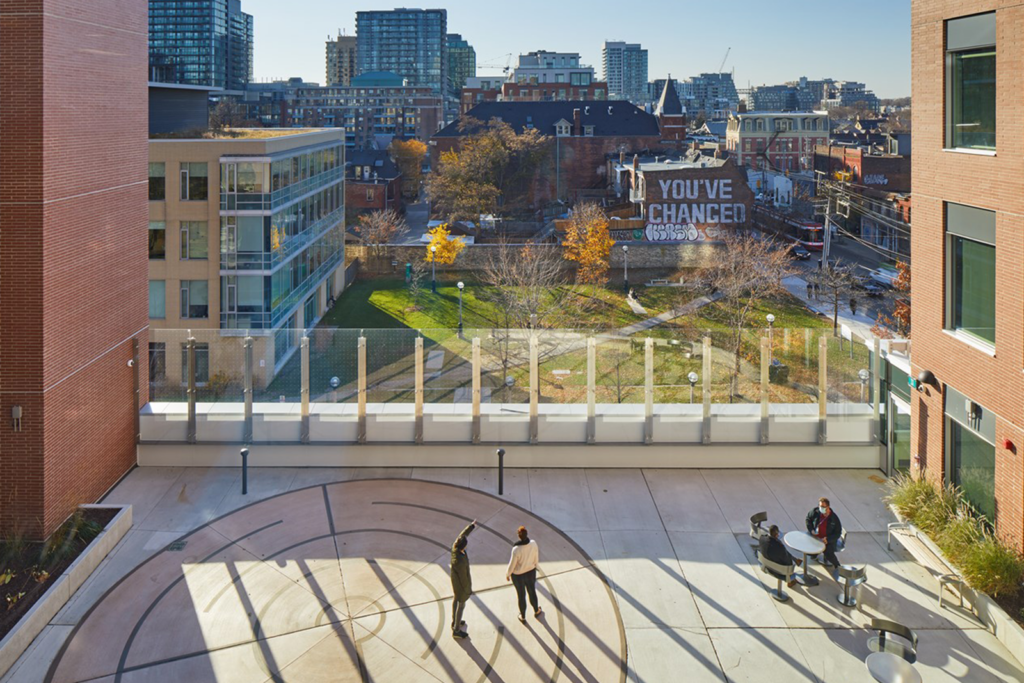

In partnership with Shopworks Architecture, this symposium will provide attendees with an opportunity to learn in-depth about the importance of trauma-informed design with people experiencing homelessness and strategies to incorporate trauma-informed design principles into all aspects of the program. Learning will be provided through didactic presentation, discussion, and panels including with programs who have utilized trauma-informed design within their own spaces.
CEU’s will be available for: ACCME, ANCC, ASWB and NY SW, AIA, and AOTA.
Speaker Information
Jennifer Wilson, PhD, MSW


Director of Research and Impact
Shopworks Architecture
Jennifer leads a multidisciplinary research team at Shopworks Architecture, a Denver-based architecture firm that specializes in supportive housing and shelter settings. As a social worker and social scientist, Jennifer has experience in direct practice and program management, research and program evaluation, training and teaching. Her research interests include social innovation and interdisciplinary collaboration to promote equity and dignity in housing and homeless service provision. Her current research at Shopworks focuses on trauma-informed design in supportive housing and shelter settings, with previous research examining tiny home villages addressing homelessness, unconditional cash for unhoused individuals, safe parking for vehicular sheltering, artificial intelligence in housing allocation, and hackathons for generating novel responses to wicked social issues. She holds a Master of Social Work from the University of Wisconsin-Madison as well as an MBA and PhD in Social Work from the University of Denver.
Laura Rossbert, M.Div


COO & Supportive Housing Specialist
Shopworks Architecture
Laura joined Shopworks Architecture in 2019 as the COO/Supportive Housing Specialist. Laura brings to Shopworks her experiences as a non-profit leader and community organizer/community engagement specialist. She is using her expertise and knowledge in best practices in homelessness and supportive housing to inform building design at Shopworks and find solutions to barriers to affordable housing, with special attention to trauma, resiliency, and equity. Prior to her time at Shopworks, she served as Deputy Director/Interim Executive Director of The Delores Project where she co-led the development of Arroyo Village in Denver, creating a new shelter for unhoused women and transgender individuals, 35 units of supportive housing, and 95 units of workforce housing using a trauma-informed lens. In that role, she also led racial equity work, trans-inclusion work, and implemented trauma-informed care in the shelter.
Stephen Parker, AIA NCARB LEED AP NOMA


Mental+Behavioral Health Planner
Stantec Architecture
A dedicated behavioral health planner and mental health design subject matter expert, Stephen is a proponent of “architect as advocate” for colleague, client, and community alike, and he believes strongly in leadership through service. Advocating by design for humanity at its most vulnerable, elevating communities in crisis, and serving those that suffer in silence, Stephen is driving purpose across Stantec’s boundaryless Mental + Behavioral Health Practice with projects from the Arctic to Australasia. Stephen has served a diverse client base, including the Cleveland Clinic, Kaiser Permanente, and the U.S. Department of Veterans Affairs, helping develop the VA’s new Inpatient Mental Health Design Guide. Stephen is an Associate Member of the American Indian Council of Engineers & Architects and served as Co-covener of the AIA Strategic Council’s Mental Health + Architecture during the pandemic. Stephen serves as Associate Director for the Design in Mental Health Network headquartered in the UK, is a Founding Member of the Center for Health Design’s Behavioral & Mental Health Environment Network and is a US representative to the International Union of Architects’ (UIA) Public Health Group. Stephen was named a Future Leader by Behavioral Health Business, received the HFSE George Pressler Under 40 Award, is an ENR Top 20 Under 40 Young Professional and a SAGE David Green Memorial Award recipient. An AIA Bethune Fellow and former YAF National Advocacy Director, Stephen has served at all levels of local, state and national AIA positions, is an AIA Young Architect Award recipient and is listed as Healthcare Design’s Best Under 40 by the AIA Academy of Architecture in Health. During his downtime, Stephen enjoys building a three-generation house and volunteering at home and abroad, most recently designing mission hospitals in Kenya and India.
Shahad Niyazi Sadeq


Executive Director
American Institute of Architects (AIA) Springfield
Shahad Niyazi Sadeq is an architectural designer and national speaker dedicated to amplifying diverse voices and cultivating sustainable workplace culture. With a background in leadership, co-founding EDI initiatives, and leading the Immigrant Architect Coalition, she aims to advance strategic and holistic policies for the efficient growth of the individual & the workplace.
Caitlin Synovec, OTD, OTR/L, BCMH


Assistant Director of Medical Respite
National Institute for Medical Respite Care (NIMRC), a special program of the National Healthcare for the Homeless Council (NHCHC)
Caitlin Synovec, OTD, OTR/L is an occupational therapist with clinical experience in working with adults experiencing homelessness to improve quality of life and engagement in their preferred communities. Caitlin’s experience includes program development for collaborative and interdisciplinary care, as well as clinical education and training for health care and direct service providers. Her work seeks to address the intersection of homelessness, poverty, traumatic brain injury, mental health, and chronic conditions, and their impact on health and community living. Most recently, she has joined the National Health Care for the Homeless Council as the Assistant Director of Medical Respite to support expansion and best practices in medical respite care.
Agenda
Note: All times are Eastern Time. This agenda is subject to change before the event.
1:00 – 1:10 – Welcome & Land & Labor Acknowledgement
1:10 – 1:30 – Introduction and evolution of medical respite care
1:30 – 2:00 – Trading Lenses: DEI Principles in Desing
2:05 – 2:35 – Trauma Informed Design Principles
2:35 – 3:05 – Behavioral Health and Design
3:05 – 3:20 – Q&A Panel
3:20 – 3:35 – Break
3:35 – 4:00 – Accessibility in Programs
4:00 – 4:30 – Program Example: RecoveryWorks
4:30 – 4:50 – Looking to the Future
4:50 – Wrap-up, poll, and resources
